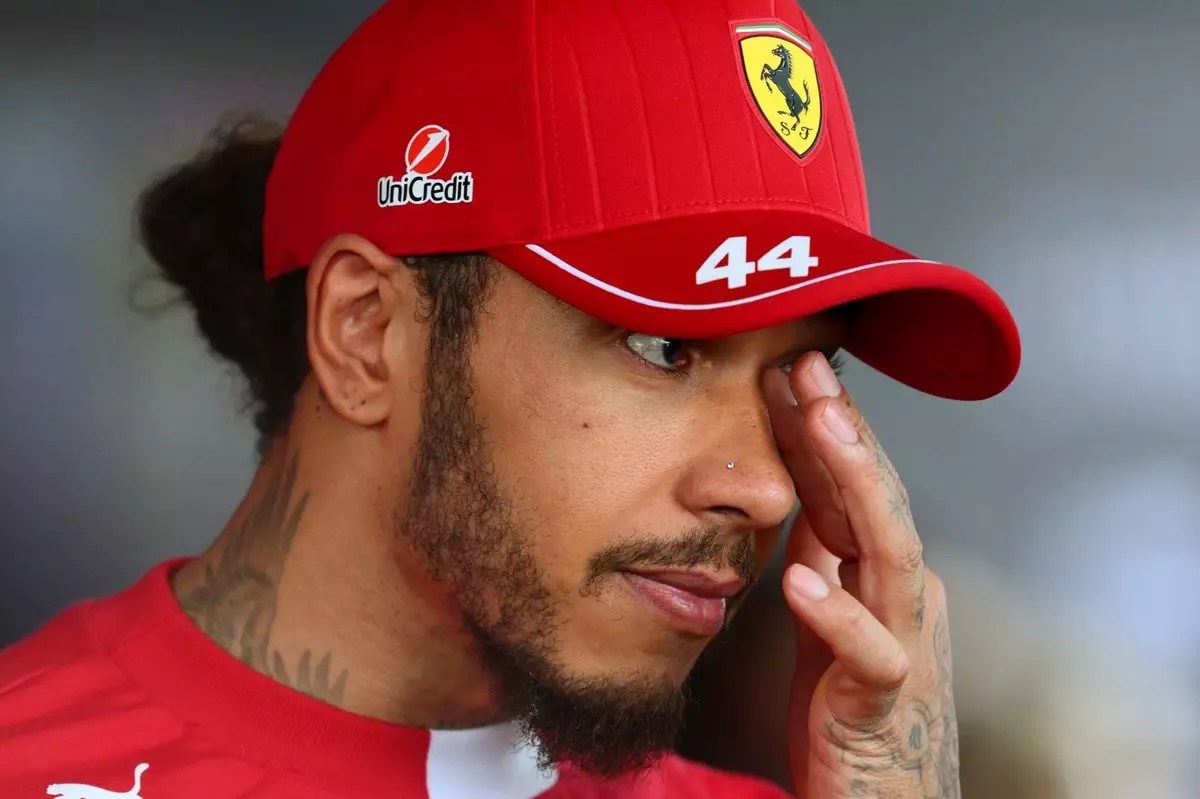In the high-octane world of Formula 1, setbacks are unavoidable, but how drivers and teams respond to adversity often defines their true strength. Lewis Hamilton’s recent struggles at the Hungarian Grand Prix serve as a poignant reminder of this reality. Hamilton, a legend in his own right, faced an uncharacteristically poor qualifying session and a challenging race that seemed to expose vulnerabilities despite his history of dominance. His blunt self-criticism indicated not just frustration but a deep desire to succeed at the highest level. Yet, what’s truly compelling is the way his team’s leadership, particularly Ferrari’s Fred Vasseur, interprets such moments—not as failures, but as vital opportunities for growth.
Vasseur’s comments shed light on a crucial mindset: resilience fueled by demanding standards. While Hamilton’s dissatisfaction is palpable, it reflects a relentless pursuit of excellence that has driven him to seven world championships. Instead of condemning these emotions, Vasseur praises Hamilton’s professionalism and ambition, aligning with the understanding that frustration can be a catalyst rather than a hindrance. This insight underpins an essential truth in competitive sports: setbacks are not signs of weakness, but stimulants for eventual mastery. For champions like Hamilton, their capacity to channel disappointment into determination is often what separates good from truly legendary.
The Illusion of Performance and the Reality of Progress
A deeper analysis of Hamilton’s Hungarian weekend reveals a nuanced picture of performance metrics versus emotional perceptions. The data indicates that Hamilton was close to his teammate in qualifying conditions, narrowly missing the cut-off in Q2, which illustrates how every fraction of a second counts in F1. It’s easy to interpret his exit as a failure, but reality suggests that the margin was razor-thin—a reminder that success in motorsport often hinges on imperceptible differences. Hamilton’s disappointment stems from the high standards he sets for himself, but vitally, it shouldn’t overshadow the fact that he remains competitive within the midfield struggle.
The narrative that Hamilton is in a downward spiral misses the broader context: his experience, talent, and relentless work ethic give him the tools to rebound. Being outperformed in qualifying doesn’t mean a driver is finished; it means there’s room for refinement. Sometimes, the difference between a pole lap and a subpar qualifying run can be reduced to microseconds influenced by conditions, setup nuances, or mere luck. Recognizing these marginal factors is essential for understanding that progress, especially for seasoned performers, often comes in micro-increments. Hamilton’s frustration is, therefore, not just emotional venting but a signal of his unyielding drive to close those micro-gaps.
The Power of Mindset and Leadership in Overcoming Adversity
Fred Vasseur’s leadership exemplifies a broader philosophy that champions mental resilience over superficial measures of success. His assertion that Hamilton is “demotivated but not demoralized” underscores a pivotal distinction in sports psychology. Motivation may ebb temporarily, but a champion’s core resilience usually endures. Vasseur’s approach—a balanced acknowledgment of disappointment combined with unwavering confidence in Hamilton’s ability—embodies a growth-oriented mindset essential for long-term success.
Furthermore, Vasseur’s perspective on human imperfection in high-pressure environments offers a vital lesson. Just as athletes may momentarily lose their composure, so do managers, engineers, and teams. The key is not eliminating disappointment but cultivating the capacity to learn from it. An environment where setbacks are normalized and viewed as opportunities drives a culture of continual improvement. Hamilton, with his history of comebacks, embodies this ideal. His recent performance doesn’t tarnish his legacy; rather, it reaffirms the importance of resilience as a core attribute of greatness.
Turning Frustration Into Fuel for the Future
While the Hungarian Grand Prix may seem like a blip, it functions as a critical catalyst in Hamilton’s career. Moments of adversity are often the forge in which true champions are made. It’s in these times that a mindset of relentless perseverance becomes invaluable. Hamilton’s awareness of his shortcomings, coupled with his experience, positions him to return with even greater focus. His team’s leadership reminds us that difficult periods should be embraced as integral chapters in the journey of mastery.
The story of Hamilton’s resilience transcends individual races; it reflects a universal truth: success isn’t about never falling but about rising stronger each time we stumble. The willingness to confront disappointment head-on, driven by the desire not to merely participate but to dominate, characterizes the mindset of a true champion. As Hamilton continues to chase greatness, his ability to transform frustration into motivation will reaffirm why perseverance remains one of the most potent weapons in the arsenal of extraordinary athletes.


Leave a Reply